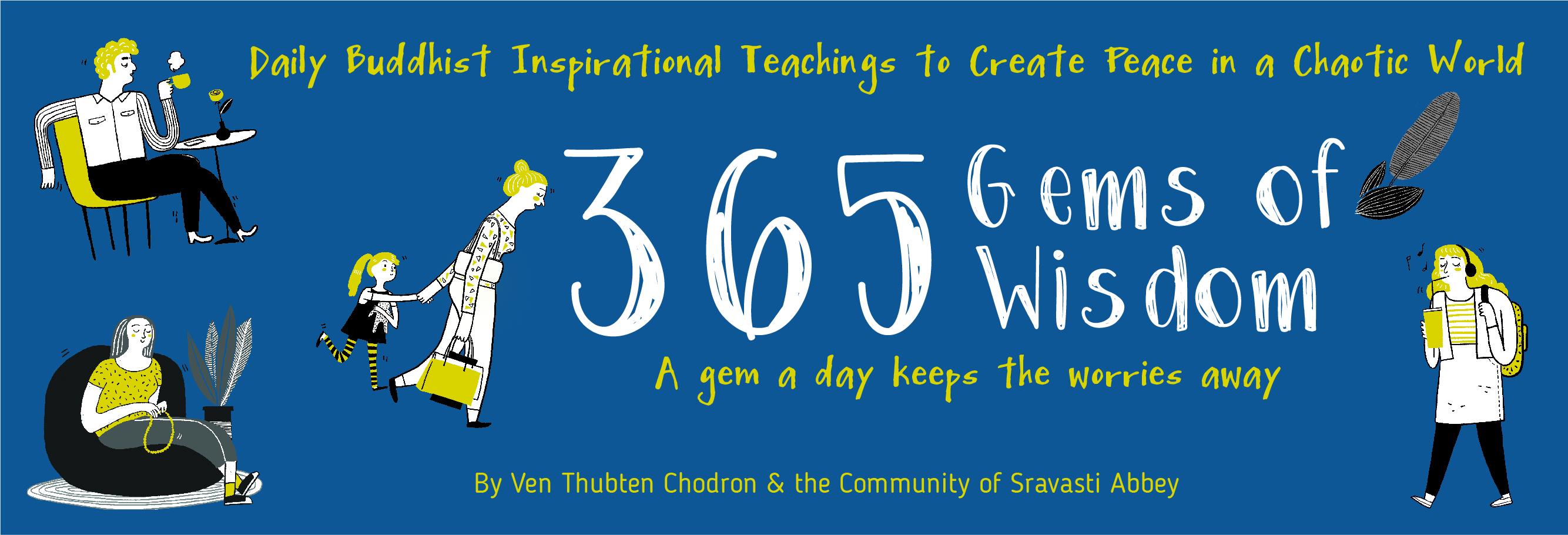January 3 : Cultivating Wisdom
Our mind is befuddled by the four distorted conceptions: (1) Seeing things that are impermanent as permanent, (2) Seeing things that are foul as pure, (3) Seeing things that are in the nature of dukkha as pleasurable, and (4) Seeing things that lack a self as having a self. All the distractions and afflictions that arise throughout the day have to do with one or more of these four distorted conceptions.
Practise thinking about the antidotes for each one, beginning with reflecting on gross impermanence — a plate breaking, or a friend dying — and subtle impermanence — the momentary change in things. By doing this, we will begin to understand that the nature of everything that arises due to causes and conditions is change. We are also changing, so there is nothing to hold on to so tightly as I or mine. Holding on to things that change at every moment causes us a lot of pain because we are fighting against reality, and reality is going to win.
To address seeing what is by nature foul as pure, consider our body. It is just skin, blood, bones, muscles, tissue, organs, etc. There is nothing there that is so attractive that we should worry about leaving it when we die or going overboard to make it comfortable. If sexual desire comes up, think deeply about the nature of the body of the person you are attached to and ask yourself if you really want to hug that.
When we see things that are dukkha or unsatisfactory by nature as pleasurable, contemplate the three kinds of dukkha: the dukkha of pain (physical and mental pain that all beings recognise as undesirable), the dukkha of change (the fact that all our ordinary pleasures eventually become disturbing if we do them long enough), and the pervasive dukkha of conditioning (the fact that we are tied to a body and mind that are under the control of afflictions and karma).
If we are grasping things that do not have a self as having a self, we need to investigate and see what is really there. In terms of a person, there is a body and a mind, but neither one of these is a person. There is nothing personal about our body or our mind. So, what is this person that we revolve our lives around? This can be very helpful to get rid of that self-focus that makes such a big deal about ourselves.
Then we can meditate on bodhicitta to shift our minds to a more realistic attitude of working for the benefit of all beings. There are countless beings, so why should one of them — who coincidentally happens to be me — be considered more important than the countless others? There is no reason. Start by wishing for the welfare of the people in the same room with you and gradually expand it to your family, friends, strangers, and enemies. We are doing our practice to benefit all these living beings, including ourselves. Make this part of your daily motivation and enjoy your practice.
“365 Gems of Wisdom” Volume One (January — March) e-book is out now!

